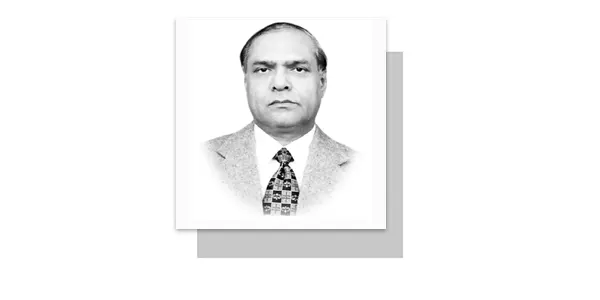ARISTOTLE the famous Greek thinker and philosopher once said that the most hated person on earth is the one who speaks the truth. This was in 384 BC when he lived. If he were alive today he would definitely add that the most loved person is the one who speaks lies 24/7, is cheater to the core and excels in dishonesty and wrongdoing.
That such practices and such people (Liars) were having a good time and achieving successes even at those times, is a manifestation of the fact that devil had his staunch followers even in those times and the trend continues still now.
Devil is perhaps working “overtime” and with double the speed as we see the rapid moral degradation of our society and values going down. Things have gone to the extent that people, who speak truth, are honest and desist from indulging in such immoral and hateful practices are considered misfits and failures in these trying times.
Re-spect and regard for each other is at the lowest ebb and honest, truthful and upright people are rare to find. After all why and how did it happen? Can we stop it? Can we control it? Can we correct the damage done and can we make every effort for a positive change?
Let us first examine the causes behind the rapid negative shift in our attitudes and behav-iour, primarily due to the excessive use of social media. Alarm bells are ringing with the ris-ing rates of divorces, family breakups and growing disrespect for elderly parents. Youth, in-cluding girls, are openly engaging in drug (ab-)use, with easy access to liquor, shisha, ciga-rettes and substances like pan gutka. The uncontrolled use of social media platforms has severely eroded our societal values, replacing decency with vulgarity, indecency and im-modesty. Platforms like TikTok, Instagram, Snapchat and Facebook, while having potential for positive impacts when used wisely, have unfortunately become flooded with content that promotes obscenity, profanity and disrespect for social norms.
The majority of videos and reels seen on these platforms reflect a disturbing shift in behaviour that is highly pro-vocative and objectionable. This deterioration of values is especially concerning in Muslim society, where such behaviour is unacceptable and harmful to the social fabric. The un-checked misuse of these platforms needs to be controlled and corrected to protect our so-ciety from further damage.
However, use of social media has positive sides too. When asked whether social media is a good or bad thing for democracy in their country, a median of 57% across 19 countries say that it is a good thing. In almost every country, close to half or more say this, with the sen-timent most common in Singapore, where roughly three-quarters believe social media is a good thing for democracy in their country. However, in the Netherlands and France, about four-in-ten agree. And in the U.S., only around a third thinks social media is positive for de-mocracy – the smallest share among all 19 countries surveyed.
In eight countries, those who believe that the political system in their country allows them to have an influence on politics are also more likely to say that social media is a good thing for democracy. This gap is most evident in Belgium, where 62% of those who feel their po-litical system allows them to have a say in politics also say that social media is a good thing for democracy in their country, compared with 44% among those who say that their political system does not allow them much influence on politics.
Those who view the spread of false media news on line as a major threat to their country are less likely to say that social media is a good thing for democracy, compared with those who view the spread of misinformation online as either a minor threat or not a threat at all.
This is most clearly observed in the Netherlands, where only four-in-ten (39%) among those who see the spread of false information online as a major threat say that social media has been a good thing for democracy in their country, as opposed to the nearly six-in-ten (57%) among those who do not consider the spread of misinformation online to be a threat who say the same. This pattern is evident in eight other countries as well.
Views on social media’s impact on democracy vary by age. In 12 countries, older adults are less likely to see social media as beneficial for democracy compared to younger generations.
For example, in Poland, nearly 87% of younger adults say social media is good for democ-racy, while only 46% of adults over 50 agree. Countries like Japan, France, Israel, Hungary, the UK, and Australia show similar gaps, with differences of at least 20 percentage points between age groups.
A median of 84% say technological connectivity makes people more susceptible to manipulation through false information and rumors, yet 73% still believe so-cial media helps people stay informed about both domestic and international events. Inter-estingly, those who recognize that social media spreads misinformation are also more likely to think it keeps people informed, demonstrating the complexity of opinions on its overall influence.
When it comes to politics, the internet and social media are generally seen as disruptive, with a median of 65% saying that people are now more divided in their political opinions. Some of this may be due to the sense – shared by a median of 44% across the 19 countries – that access to the internet and social media has led people to be less civil in the way they talk about politics.
Despite this, slightly more people (a median of 45%) still say connectivity has made people more close to people from different ethnic, religious, cultural and social groups. However, there is widespread concern over misinformation – and a sense that peo-ple are more susceptible to manipulation.
—The writer is former Civil Servant & Consultant: ILO and IOM.










